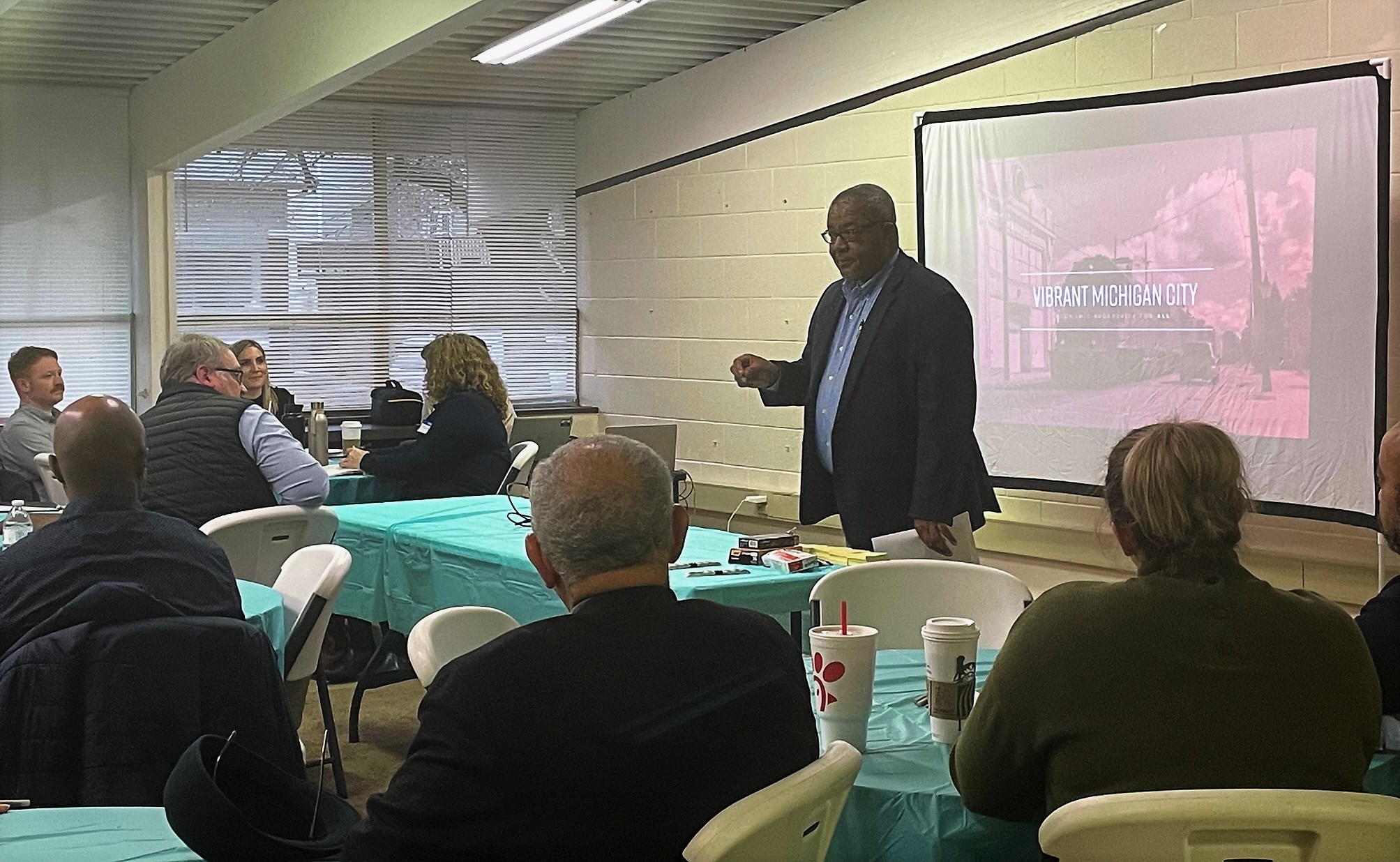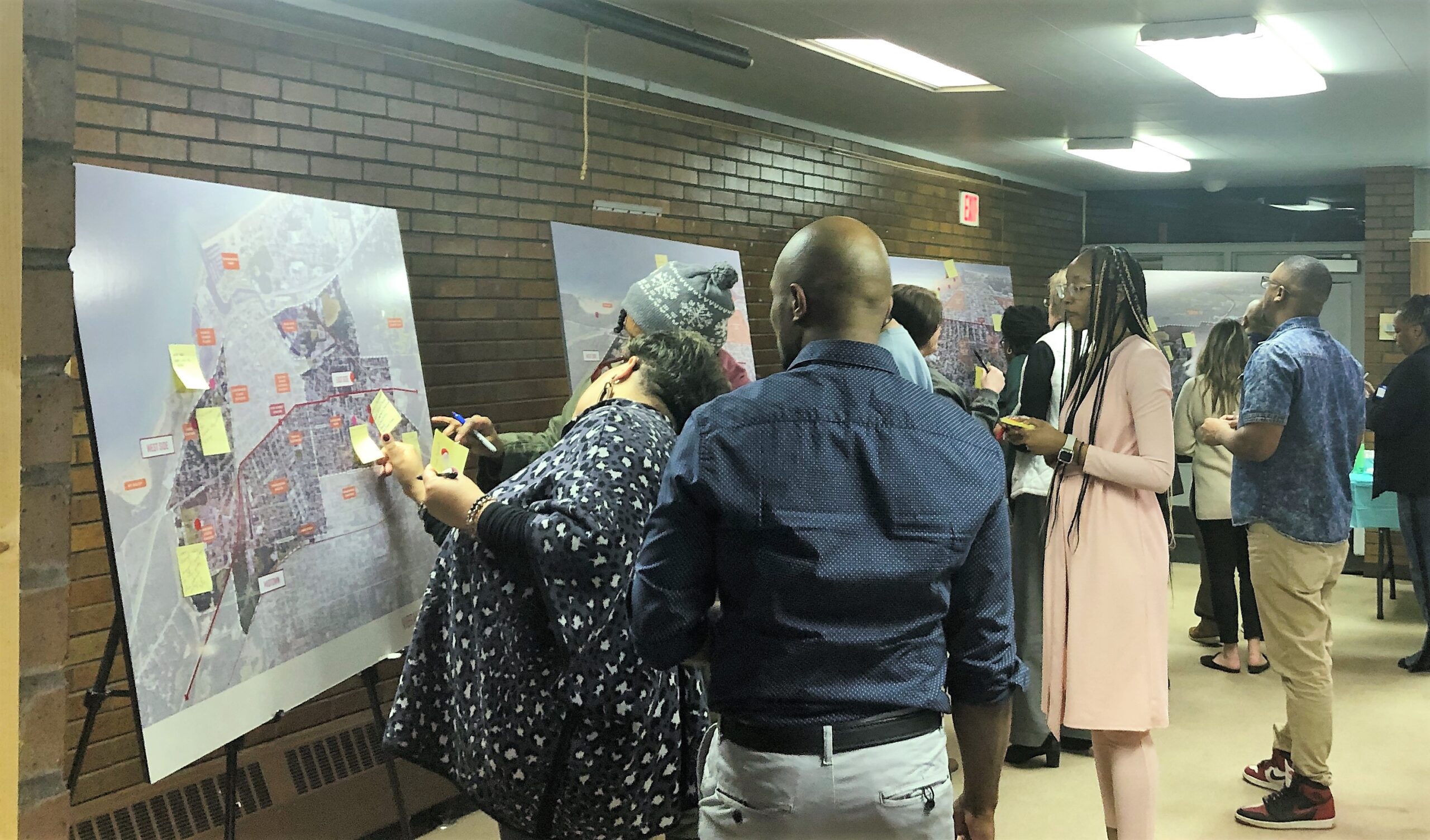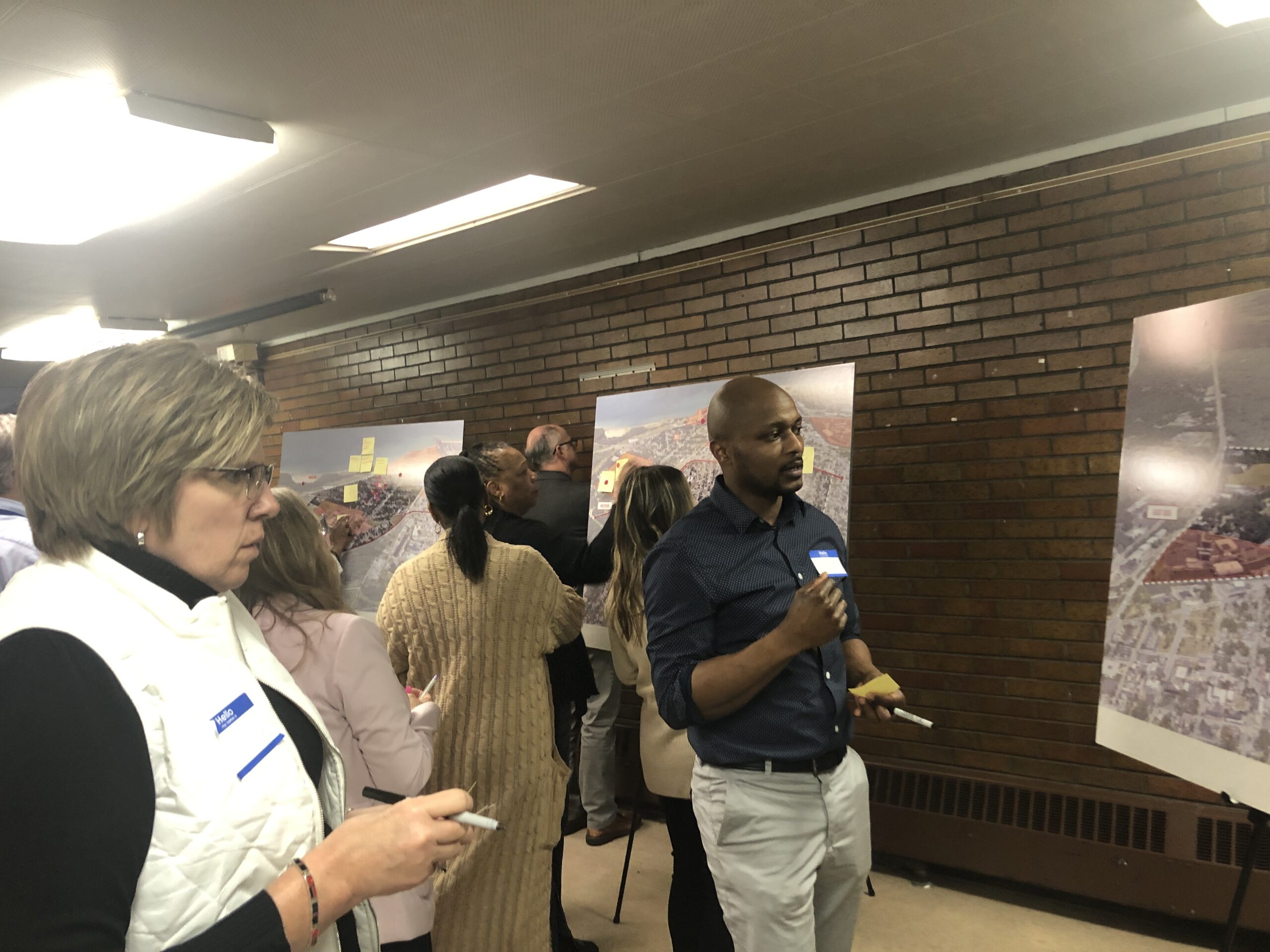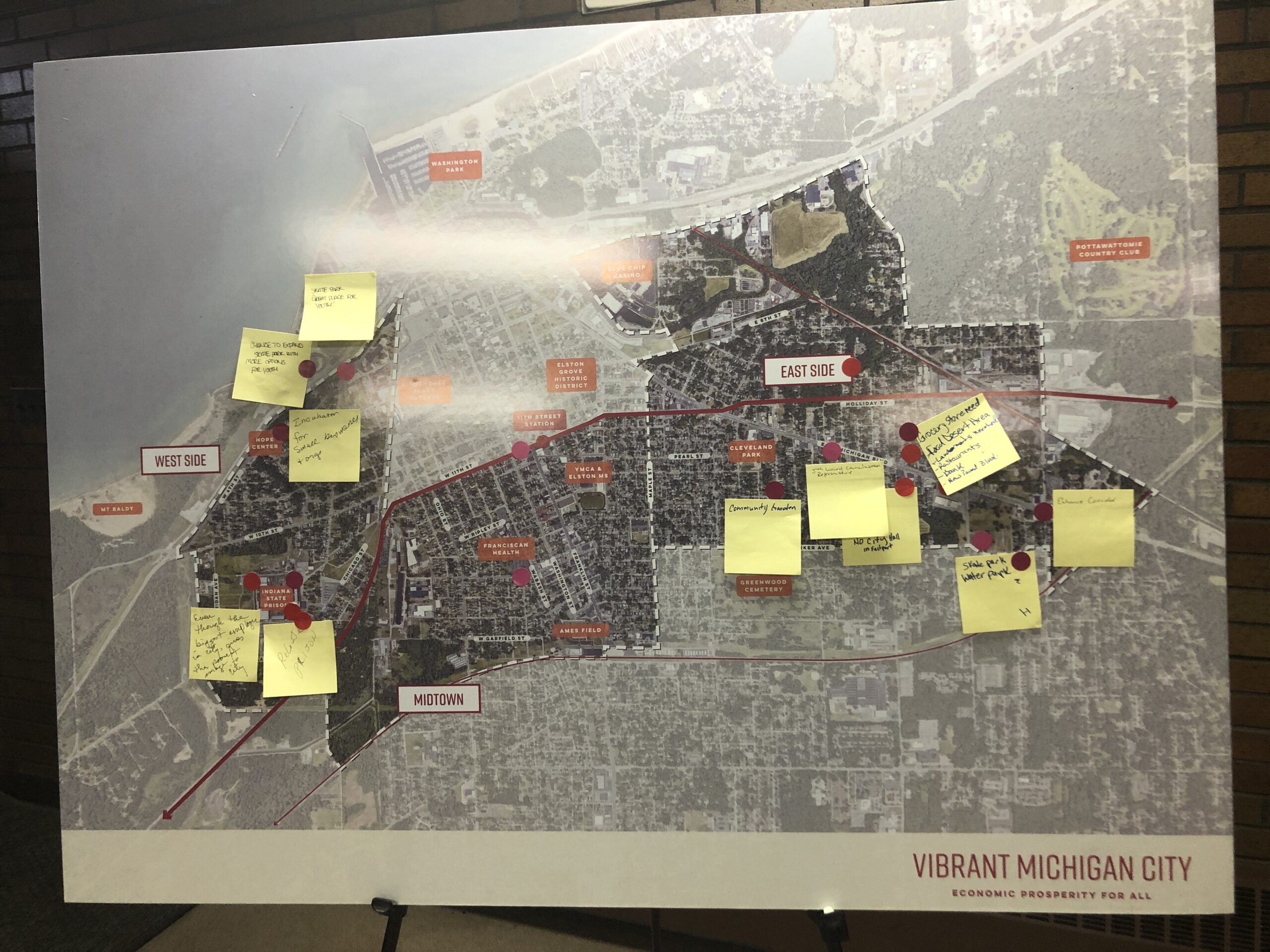MICHIGAN CITY, Ind. – The Community-Centered Economic Inclusion initiative launched locally on Feb. 16 with a kick-off meeting of the coalition advisory team and representatives from the Brookings Institution’s Bass Center for Transformative Placemaking and the Local Initiatives Support Corp.
“We know communities thrive when residents and stakeholders work together to enact change, particularly when this effort is targeted in specific neighborhoods,” said Katy Renn, a consultant working with the LISC team. “The fantastic participation and input at the first meeting demonstrate the strong basis for community-driven work, and we are excited to see how the next several months unfold.”
“Bottom line, we are looking for this experience to unite diverse community members to all be on board for actionable steps and to champion the path toward positive change,” added Clarence Hulse, Executive Director of the Michigan City Economic Development Corporation. “By having a shared consensus on how to proceed, we are more likely to turn the final strategic plan into real progress in these regions of our city.”
The initiative, named Vibrant Michigan City, gathers community stakeholders from the city, nonprofits, businesses, elected officials, economic development experts and the real estate arena to spur opportunities for a more economically inclusive community.
Business owner and lifelong resident Brandon Thompson said he looks forward to offering input to make a difference in Michigan City as a coalition member. He is president of 11Eleven, which focuses on uniting diverse gamers through competitions and tournaments.
“With my business experience and my personal career experience in gaming for over 20 years, I am able to contribute to the voices of our community in the youth and young adult age group,” Thompson said. “I am happy we are taking steps to improve Michigan City, especially in these areas that need it. The impact this initiative can make is extremely positive.”
Amber Terry, Divisional Director of WeConnect for Goodwill Industries of Michiana Inc., is also serving as a coalition member to bring new ideas to the table and give back to the community.
“I hope the city and community will gain a new way of collaborating, thinking outside the box for community needs and creating opportunities for individuals within our community,” Terry said.
The year-long Learning Lab will include research, meetings, discussions, interviews, public input and more that is pinpointed to areas identified as needing additional assistance to flourish. The process is guided by the Brookings and LISC leaders who will aid in the mobilization and cultivation of what is needed to boost the selected Midtown, East and West areas.
“Our next steps include working with the core team – EDCMC, the city, community foundation and religious leaders – to engage residents, employers, public and private stakeholders and other partners on what they would like to see included in the three-year agenda,” Renn said.
Community members wanting to learn more about this initiative can join the next community input session at 6 pm April 20 at the HOPE Community Center.
“We are just in the initial stages of this initiative, and we look forward to community members joining us on this journey,” Hulse said.
The effort is also supported by the Indiana Economic Development Corporation and focused on small cities located in the state of Indiana’s READI program regions. Through READI, 17 regions across the state that represent all 92 counties are moving forward with projects and programs designed to enhance Indiana’s regions for current and future generations of Hoosiers. The collaborative initiative also unites city and regional stakeholders to garner vital input from all corners of each community.
Additional Indiana towns that are participating include Seymour and Warsaw. Each town will develop a CCEI agenda upon completion of the Learning Lab to detail how to address economic stagnation and inequity. These individual agendas will come together into a playbook that will be shared on a national platform to spotlight how rural and small cities can work together to spur prosperity.
